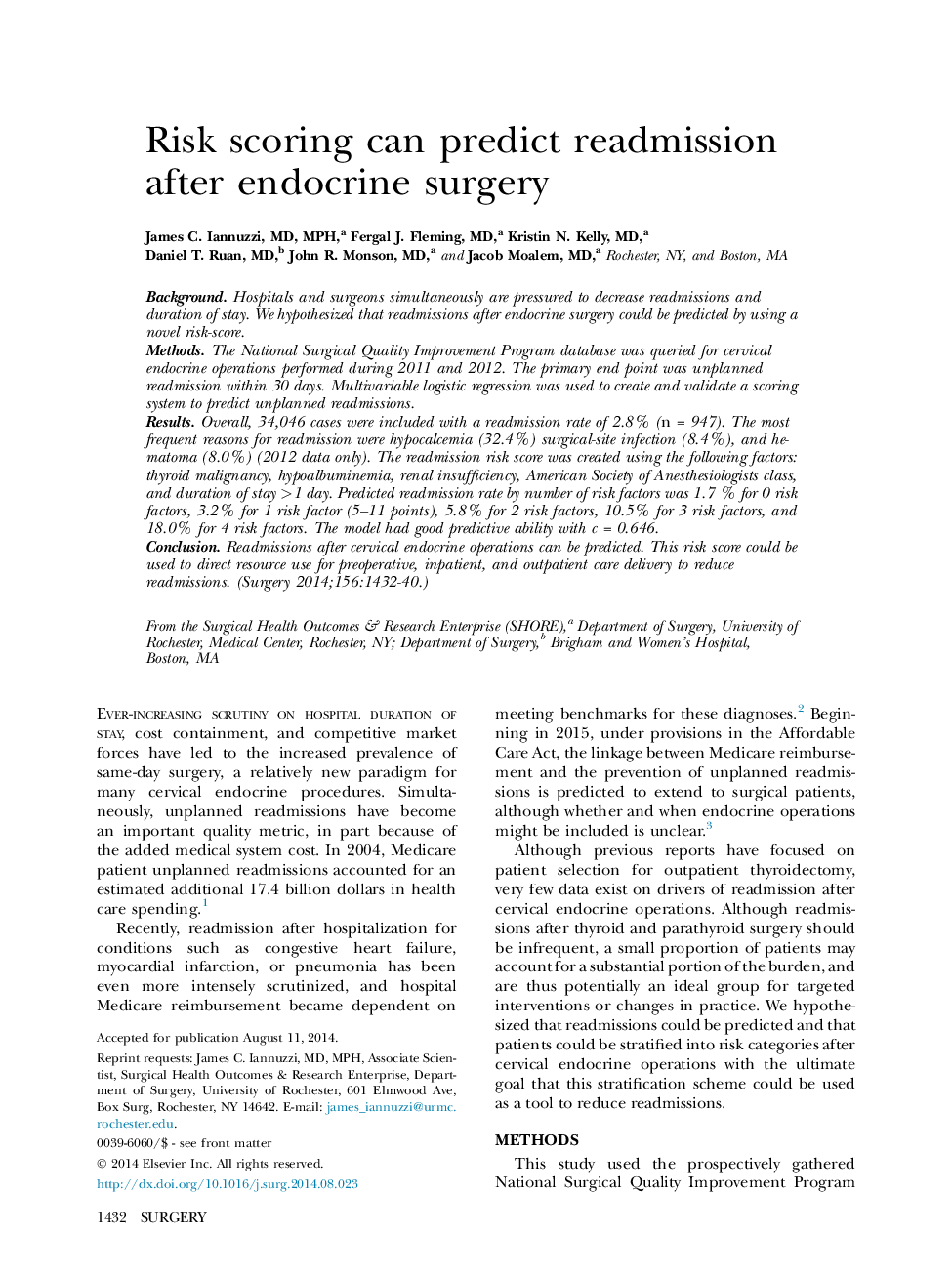| Article ID | Journal | Published Year | Pages | File Type |
|---|---|---|---|---|
| 4307431 | Surgery | 2014 | 9 Pages |
BackgroundHospitals and surgeons simultaneously are pressured to decrease readmissions and duration of stay. We hypothesized that readmissions after endocrine surgery could be predicted by using a novel risk-score.MethodsThe National Surgical Quality Improvement Program database was queried for cervical endocrine operations performed during 2011 and 2012. The primary end point was unplanned readmission within 30 days. Multivariable logistic regression was used to create and validate a scoring system to predict unplanned readmissions.ResultsOverall, 34,046 cases were included with a readmission rate of 2.8% (n = 947). The most frequent reasons for readmission were hypocalcemia (32.4%) surgical-site infection (8.4%), and hematoma (8.0%) (2012 data only). The readmission risk score was created using the following factors: thyroid malignancy, hypoalbuminemia, renal insufficiency, American Society of Anesthesiologists class, and duration of stay >1 day. Predicted readmission rate by number of risk factors was 1.7 % for 0 risk factors, 3.2% for 1 risk factor (5–11 points), 5.8% for 2 risk factors, 10.5% for 3 risk factors, and 18.0% for 4 risk factors. The model had good predictive ability with c = 0.646.ConclusionReadmissions after cervical endocrine operations can be predicted. This risk score could be used to direct resource use for preoperative, inpatient, and outpatient care delivery to reduce readmissions.
